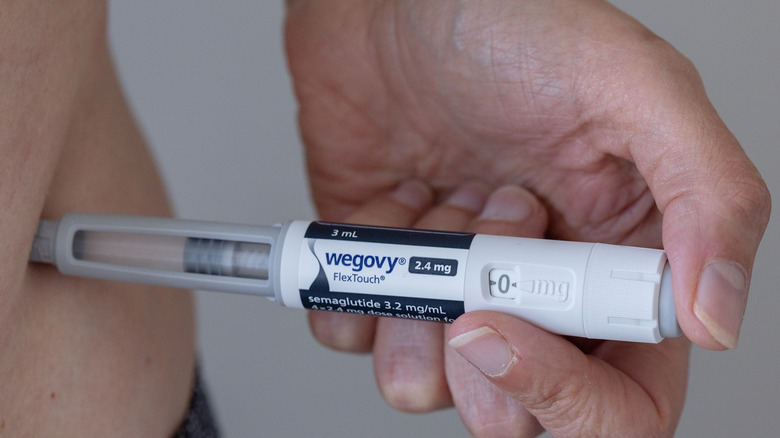Will Taking A Higher Dose Of Semaglutide Increase Your Weight Loss?
While many people want to lose weight for weddings, reunions, or summer events, maintaining a healthy weight is important for long-term health. According to the Centers for Disease Control and Prevention, obesity increases the risk of chronic health conditions such as high blood pressure, high cholesterol, type 2 diabetes, osteoarthritis, and sleep apnea.
Semaglutide and other GLP-1 medications help people with obesity lose weight and lower their risk of chronic diseases. A Kaiser Family Foundation poll found that about 1 in 8 people in the United States have used a GLP-1 drug to manage heart disease, type 2 diabetes, or excess weight. However, for some people with obesity, the approved 2.4-milligram weekly dose may not be enough to reach their weight-loss goals.
A 2025 study published in The Lancet Diabetes & Endocrinology found that a 7.2-milligram dose of semaglutide led to an average of 3% greater weight loss over 72 weeks compared with the 2.4-milligram dose. People taking the higher dose were also more likely to achieve significant weight reductions of 20% to 25%. However, it should be noted that this dose is not currently FDA-approved.
A higher dose of semaglutide increases your risk of side effects
The STEP UP study was a phase 3 clinical trial to see whether the 7.2-milligram dose of semaglutide was both safe and effective. More than 1,400 people with obesity participated in the study, with 1,005 of them taking the 7.2-milligram dose for over a year. On average, participants taking the higher dose lost 18.7% of their body weight. The 2.4-milligram dose was also effective, helping participants lose an average of 15.6% of their weight. In comparison, those who received the placebo lost nearly 4% of their weight.
(Read about the weight-loss strategy that's more effective than semaglutide.)
The higher dose of semaglutide was associated with a higher risk of side effects such as nausea, vomiting, and diarrhea. Among those taking the 7.2-milligram dose, 71% experienced gastrointestinal issues, and 23% reported tingling or abnormal sensations in their bodies. Interestingly, 43% of people taking the placebo also experienced gastrointestinal symptoms during the study.
Participants in the higher dose group lost an average of 11.7 centimeters (about 4.6 inches) from their waistline compared with 8.6 centimeters (about 3.4 inches) in the 2.4-milligram group and 1.3 centimeters (about 0.5 inches) in the placebo group. A larger waist circumference is linked to a higher risk of conditions such as high blood pressure, type 2 diabetes, high cholesterol, and joint pain, according to a 2020 study in the Journal of Public Health Research.
Avoid taking a higher dose of semaglutide unless guided by a doctor
Semaglutide has been approved by the Food and Drug Administration to treat type 2 diabetes and obesity while also helping lower the risk of heart-related complications (via National Institutes of Health). It's important to talk with your doctor about how to safely increase your dose so your body can adjust to the medication.
For example, when starting Wegovy (the brand-name version of semaglutide for obesity), you may begin at a 0.25-milligram dose. About every four weeks, your healthcare provider may gradually raise your dose by around 0.5 milligrams until you reach the maintenance dose of 2.4 milligrams. You may not even need to take a dosage this high as long as you're seeing results with a lower dose.
Even though the STEP UP clinical trial tested a higher 7.2-milligram dose, you should never take more than what your doctor prescribes. Taking too much semaglutide can increase the risk of low blood sugar, severe digestive issues, dehydration, or inflammation of the pancreas (per Mayo Clinic).
(Read why the FDA is cracking down on telehealth providers selling semaglutide.)
Wegovy comes in prefilled injection pens that help prevent dosing errors, but compounded versions of semaglutide from certain pharmacies may leave the dosing up to you. According to the FDA, some people using compounded semaglutide accidentally took up to 20 times the intended amount because of measurement errors. In some cases, this semaglutide overdose led to hospitalization.


